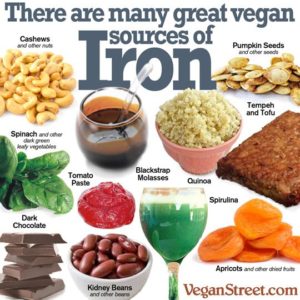

Today our topic is future generations using healthier habits in their lifestyles with eating foods healthier overall for their bodies but still being able to treat yourself to foods not necessarily the best to be eating on a regular basis (Ex. Fast Foods. Even though their trying to be healthier their still not an item to be eating every day). I’m a female at midlife and am within my body mass index and still with some muscle tone which ending line is doing good but if you think I have natural high metabolism your dreaming. If you live on eating not 3 but 6 small meals a day with a limited about of calories, carbohydrates, and low fat you will allow your metabolism to stay at a steady level and it’s not for a few days, weeks or months but your regular way of living with treating yourself to foods now & than but know when you do that you cause your regular diet to go back 4 days and slow down the metabolism. If you’re in your regular body mass index at that point great and watch what you eat the next few days with going back on your regular healthy foods but if not in the therapeutic Body Mass Index (BMI) and you want to lose weight than no treats yet. Now we’ll get to the proper and improper foods to eat in one second. Eating healthy foods in your regular life will help you not only with keeping your weight at a nice weight but as you grow older you decrease a lot of diseases caused by eating foods high in fat, cholesterol=in time blockages in the arteries can happen causing cardiac problems. Eating foods high in carbohydrates, calories, and sugars will just put high probability that you will become overweight especially if you’re not doing any work-out or activity other than work and regular daily activities. Becoming overweight or just eating foods that are unhealthy or even both can cause many problems as getting older (Obesity, Diabetes II, Hypertension, blockages in the arteries=Coronary Artery Disease and more). The younger you are the easier it is to change but even being older you can change (its putting your mind to it). So for both age groups it just takes being a strong person and discipline but also knowing when you mess up in your diet and activity to restart the regular dieting/exercise that you do with making it less mess ups in the diet. You need to know when you do mess up yuu probably put yourself back 4 days in your diet. So lets cover foods to avoid: Cereals: So-called “healthy” cereals are the worst foods you can possibly eat at the start of the day.
They are usually loaded with sugar and refined carbs, which are some of the most fattening ingredients in existence.
Starting your day off with a processed cereal will spike your blood sugar and insulin levels. When your blood sugar crashes a few hours later, your body will call for another snack high in refined carbs.
This is the blood sugar roller coaster that is familiar to people on high-carb diets.
Seriously… READ the label. Most breakfast cereals, even those with health claims like “low-fat” or “whole grain” on the package, are usually loaded with sugar.
If you’re hungry in the morning, eat breakfast… but choose something unprocessed and that has protein in it (like eggs and veggies).
If you really must eat cereal for breakfast, find one that doesn’t include sugar or highly refined grains.
Bottom Line: Most commercial breakfast cereals are high in sugar and refined carbs, which are highly fattening and extremely unhealthy.Agave nectar (or Agave syrup) is often marketed as a natural alternative to sugar and high fructose corn syrup.
The problem with Agave, is that it is not healthy at all. If anything, it is even worse than sugar.
One of the main reasons sugar is so unhealthy, is that it contains excessive amounts of the simple sugar fructose.
Whereas sugar contains 50% fructose, Agave contains as much as 70-90%!
Of course, small amounts of fructose from fruit are fine, but consuming excessive amounts from added sugars can have devastating effects on metabolic health.
High amounts of fructose can cause insulin resistance and chronically elevated levels of the fat storing hormone insulin.
It can also cause high triglycerides, elevated blood sugars, harmful effects on your cholesterol, abdominal obesity and a ton of other metabolic problems.
If you think you’re doing your body a favor by replacing sugar with Agave, think again. You’re actually making things worse.
Whole Wheat Bread
Whole wheat is often recommended as a healthy alternative to refined wheat.
Instead, use a natural sweetener that is low in fructose.
Well… it’s true. Whole wheat is, at the very least, “less bad” than refined wheat.
But one of the main problem with most whole grain foods, is that they aren’t made from actual whole grains. It is a marketing ploy.
Almost without exception, the grains have been pulverized into very fine flour that is just as easily digestible and spikes blood sugar just as fast as the refined grains.
In fact, whole wheat bread has a glycemic index (a measure of how quickly foods spike blood sugar) that is just as high as regular white bread.
Whole wheat bread might contain a little more fiber and some more nutrients, but there really isn’t much difference when it hits your system.
Plus, there really is NO nutrient in wheat (whole or refined) that you can’t get in even greater amounts from other foods.
There are some grains out there that seem to be healthy for people who can tolerate them, but wheat definitely does NOT belong in that category.
Many studies show that wheat (even “heart-healthy” whole wheat) can lead to health problems, especially in people who are sensitive to gluten.
Bottom Line: Whole wheat bread is usually not made with actual whole grains. It spikes blood sugar just as fast as white bread and can contribute to various health problems.
Bottom Line: Agave is even higher in fructose than sugar and high fructose corn syrup. Excessive fructose consumption is strongly associated with obesity and all sorts of metabolic diseases.
=Granola: If granola is made with real ingredients, it certainly can be healthy.
But it suffers from the same problem as most other “health foods.”
-Low Fat Yogurt:
Low Fat Yogurt: This food yogurt is often considered to be a healthy food… and it is.
But the problem is that most yogurt found in stores is low-fat yogurt… which is highly processed garbage.
When food manufacturers remove the fat from foods, they taste terrible. That’s why they add a whole bunch of other stuff to compensate for the lack of fat.
In the case of yogurt, they usually add sugar, high fructose corn syrup or some kind of artificial sweetener.
But new studies are showing that saturated fat is actually harmless… so low-fat yogurt has had the good stuff removed, only to be replaced with something that is much, much worse.
There is also no evidence that dairy fat contributes to obesity. In fact, one study showed that people who ate the most high-fat dairy products were the least likely to become obese!
When the food manufacturers start mass producing them, they alter them in a way that they aren’t healthy anymore.
Granola contains some healthy ingredients like oats and nuts, but when you add sugar and oil to it and combine it in a package that encourages overconsumption, then it isn’t healthy anymore.
This list of foods NOT to eat has been sorted into food group categories also. You should avoid these unhealthy foods as much as possible.
- Refined Sugar: Besides staying away from table sugar and candy, watch for added sugar hidden everywhere. Learn the many different sugar names and check all packaged, canned and processed foods, such as cereals, prepared meats, bakery goods, jams, etc.
- Grain Products: Avoid refined grain foods. These include most breads, crackers, pasta and breakfast cereals. Also eliminate cakes, pies, doughnuts, cookies, croissants, muffins and all pastries and snack foods such as chips, most snack mixes and buttered popcorn.
- Fats and Oils: Limit saturated fats and refined vegetables oils. Eliminate food with trans fats and other bad fat. This includes margarine, lard or partially hydrogenated oils found in cookies, cakes, pastries, doughnuts, chips, fried foods, candy and most chocolate.
- Meats, Poultry and Fish: – Eliminate red meats high in saturated fats and other fatty cuts of meat – ribs, bacon, sausage, hot dogs, pepperoni, salami, bologna and other packaged meats, plus most hamburgers. Also avoid fried fish, meats and poultry, as well as poultry skin.
- Dairy and Eggs: Cut out cream and any cream products, such as full-fat cream cheese, sour cream, cream sauces, whipped cream and ice cream. Limit the use of butter, eggs and full-fat cheeses and eliminate whole milk, 2% reduced fat milk and whole milk.
- Beans, Nuts and Seeds: Stay away from any bean soups or chili that contain sausage, bacon, ham or other high fat meats. Also avoid all salted nuts and seeds, as well as those roasted in oils.
- Fruits and Vegetables: Eliminate fried vegetables and fruits, vegetables with butter, cheese or cream sauces and fruits with cream or whipped cream. Also avoid fruit drinks and fruit juices. One cup of fruit juice has no fiber and up to 10 teaspoons of high glycemic
- Excess Salt: Average salt consumption in the U.S. is 10-15 grams a day. The National Academy of Sciences recommends 3-8 grams. To cut your salt intake in half, limit table salt and avoid chips, salted nuts and popcorn and most prepared, canned and packaged foods.
- Liquids: Avoid all sodas, milk shakes, fruit juice and fruit drinks and greatly limit or totally eliminate caffeine and alcoholic beverages.
Your body’s an amazing machine with an extraordinary network of systems operating inside you right now. Healthy food provides the nutritional fuel necessary to keep you running smoothly and prevent breakdowns.
As you learn what unhealthy food to avoid, start today replacing the foods NOT to eat with the very best foods to eat for great health.

